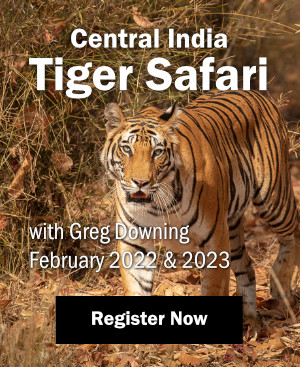 How did you get started in nature photography?
How did you get started in nature photography?
I have always had a love for nature, and photography has been part of my life ever since I was young. I got my first SLR, a Pentax Spotmatic with a standard prime 50mm f/1.4 lens, in the late 60’s. I’d photograph almost anything that interested me then. My enthusiasm and passion for bird photography was not triggered until I casually took a single image of a Little Egret flying over a river next to blocks of high-rise buildings. Since 1996, I’ve devoted my time to photographing the wetland birds of Hong Kong.
2. Where do you get inspiration for your work?
Arthur Morris is one of the bird photographers that I admire. Actually I bought his book, The Art of Bird Photography, when I first started my bird photography and learned tremendously from it. And of course I also get inspiration from the many nature and wildlife critique forums on the internet and in particular NatureScapes.net.
3. Where is your favorite place to photograph?
Since I don’t travel the globe nowadays I concentrate my avian work locally here in Hong Kong. One would be surprised to find so many bird species in a busy and crowded city like Hong Kong. The Territories lie at the heart of the East Asian-Australasian Flyway (EAAF), which extends 13,000 km from the Arctic Circle through Southeast Asia to Australia and New Zealand. Hong Kong has a great range of wetland habitats that support many species. The best and one of my favorite shooting spots is Mai Po Nature Reserve and its vicinity Deep Bay where thousands of shorebirds winter.
4. What’s your favorite walk around lens?
My most used lens is the 500mm f/4 which is a good compromise between weight and reach. But for general walk around as well as scouting nothing beats my 400mm f/5.6 as a wildlife/nature lens.
5. Are there any other subjects you like to photograph?
Macro and flora come next on top of my list of most photographed subjects. It allows me to discover a whole new world that we often missed by our naked eyes. Most of these micro subjects are fascinating and surprisingly colorful. Apart from nature photography I still do portraiture (people) from time to time.
6. You photograph a lot of birds and moderate the bird forum on NSN. What made you gravitate toward avian photography?
Photographing birds has become an all time consuming passion for me since 1996. Birds are fascinating creatures. My fascination with birds comes from watching their behavior. They are strong and yet fragile. They come in a variety of sizes, plumage, colors and shapes. Bird photography is challenging as it requires both the skill as well as the patience of the photographer to capture the decisive moment. Birds are often difficult to approach and fearful of humans. I see photography as an art. Combining the two is even more challenging and rewarding. In my mind the rewards out weigh the time, effort and hardship I spent in capturing the images.
It is my intent to use these irresistible charming images as persuasion to bring people’s awareness of what diversity and beautiful birds we have here in the door step of a busy city like Hong Kong and hence the importance of conservation and the need to preserve our natural heritage.
7. What is your most memorable photographic experience?
This has to be the close encounter I’ve had with the Dalmatian Pelican here in Hong Kong. It was a rare opportunity despite the less than ideal weather condition then. I can still remember the experience vividly and how my heart raced to see them less than 100 feet or so right in front of me! I’ve created a special feature gallery (below) to show off the beauty of the Dalmatian Pelican.



 Print article
Print article












 Back to Top
Back to Top


























